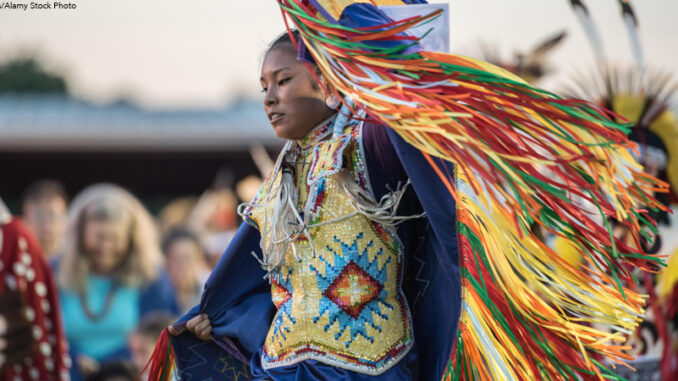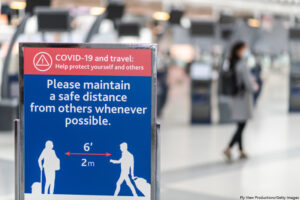
Native American Heritage Month
November is Native American Heritage Month: a time to honor and recognize the widespread contributions of Native Americans. This time celebrates their rich and diverse cultures and histories. In addition, President Biden named November 26, 2021, Native American Heritage Day. Many of the country’s major museums have planned events in tribute. Here are a few highlights:
- On November 1, Secretary of the Interior Deb Haaland and U.S. Poet Laureate Joy Harjo hosted an online conversation with the Librarian of Congress.
- November 12 to 18 is the Native Cinema Showcase, a virtual event which features 47 Native films.
- Throughout the month, the Smithsonian National Museum of the American Indian will host several conversations, dialogues, and film showings.
Want to celebrate Native American Heritage Month at home? Why not read a book by a Native American author? Sherman Alexie, Christine Day, and Angeline Boulley are great authors to start with. Do some research and reading on Native American history in your state.
Dig Deeper Use the Internet to research more about the Native American history where you live. Write a paragraph about what you find and explain how it helps you better understand the community that you live in.
Judge Approves $626 Million Settlement in Flint Water Suit
In 2014, the city of Flint, Michigan, was in a financial state of emergency. To save money, Flint officials decided to switch water sources. Instead of using Detroit’s water system (which draws from Lake Huron), the city used water from the Flint River instead. But the state neglected to treat the water properly, and so the city’s aging pipes began to corrode. Lead from inside the city’s water pipes mixed into the city’s drinking water. Residents noticed that their water tasted strange and was sometimes an unusual color. Local officials, however, denied that anything was wrong. As a result, the residents of Flint were exposed to high levels of lead in their water for over a year. Many Flint residents experienced severe lead poisoning, and twelve people died. Nearly 100,000 Flint residents were left without safe tap water in one of the worst public health problems in U.S. history.
In 2015, the city switched back to using a Detroit regional water agency. Fifty thousand people filed a lawsuit against the state of Michigan for overlooking the public health risks caused by the switch. In August 2020, Attorney General Dana Nessel and Michigan Governor Gretchen Whitmer announced a $626 million settlement for Flint residents and others who were exposed to the contaminated water. About 80 percent of the settlement will go to children under eighteen who suffered lead exposure, especially those under six. In mid-November 2021, a federal judge approved that settlement.
Dig Deeper Research the effects of lead poisoning, especially to those who are under the age of eighteen. Summarize what you learn.
Nigerian Inventor Fights Food Waste
How much food does your household throw away every week? Every year? About one-third of the food produced in the world for humans every year is lost or wasted. That is about 1.3 billion tons every year. The United Nations estimates that food waste accounts for up to ten percent of global greenhouse gas emissions. Some countries produce more food waste than others, usually due to problems along the food supply or distribution chains.
In Nigeria, for example, the World Bank estimates that 31 percent of the total land use in the country is used to grow food that winds up being wasted. One reason for this is that many places in the country lack access to electricity, which means that produce, fish, and meat can’t be kept cold and spoils quickly in the hot climate.
Nnaemeka Ikegwuonu decided to do something about this. He created ColdHubs, which are ten-foot-square solar-powered refrigerators that keep perishable food cold and fresh for up to 21 days. Since he first developed the concept in 2015, there are now 54 ColdHub units in 22 states across Nigeria. Last year alone, ColdHubs stored forty thousand tons of food.They are solar powered; they don’t require fuel or electricity to run; and the ColdHubs don’t produce harmful emissions.
Ikegwuonu has just been announced as one of the winners of the $1.5 million AYuTe Africa Challenge, which awards people who use technology to come up with new ways to improve food production in Africa.
Dig Deeper Uses Internet resources to learn more about the AYuTe Africa Challenge. How long has the program existed? Besides Ikegwuonu, who are some of the other winners? What did they do? Write a paragraph about what you learn.
Room Sheds Light on Ancient Pompeii
Pompeii, a city destroyed by a volcanic eruption from the nearby Mt. Vesuvius in the year 79, is one of the best-preserved ancient places in the world. Scientists continue to make more and more discoveries in the area. This research helps them learn about how this ancient civilization functioned. Recently, in a villa in Civita Giuliana (a northern suburb of Pompeii), scientists discovered a room where enslaved persons lived. It is so well-preserved that scientists have made plaster casts of many of the items inside of it.
The room appears to contain three beds made of wood and rope as well as a wooden chest containing metal and fabric objects. There is also a chariot shaft and what appears to be parts of a horse harness. One of the beds is shorter than the other two, which could possibly mean that it was for a child. Personal items found include many storage containers, ceramic jugs, and a chamber pot. The room is just sixteen square meters in size. It is located near the villa’s stable, and is lit by only a small upper window.
The discovery helps provide more detail to the historical record of how enslaved people lived at this time. Very few historical sources provide this sort of life detail. Unfortunately, some of the artifacts in the room have been lost or compromised due to tunnels dug by looters and grave robbers.
Dig Deeper What can you learn about life in Pompeii from the objects described in the room? Use you critical thinking skills and some imagination to try and describe what you think.
International Travel Restrictions Lifted
For the past year and a half, due to the COVID-19 pandemic, the United States has been closed to international travel from many countries. Last week, however, those restrictions were finally lifted. Non-U.S. citizens can now enter the U.S. from 33 previously banned nations as long as they can present proof of vaccination and a negative COVID-19 test. Airlines will also collect information about passengers for the purpose of contact tracing. People driving across the border from Canada and Mexico must have proof of vaccination, but don’t need to take a COVID test. (The U.S. will accept any vaccine approved for emergency use by the World Health Organization.) Children under eighteen are exempt from the vaccination requirement, though they do need a negative COVID test.
Airlines are increasing flights between the U.S. and the U.K. by 21 percent in November. United Airlines expects a 50 percent increase international travelers to the United States. Delta Airlines has already seen a 450 percent increase in incoming international bookings since the announcement of the ban removal.

